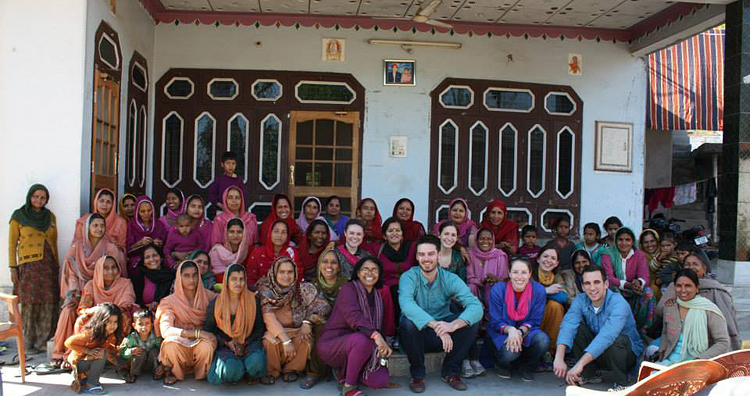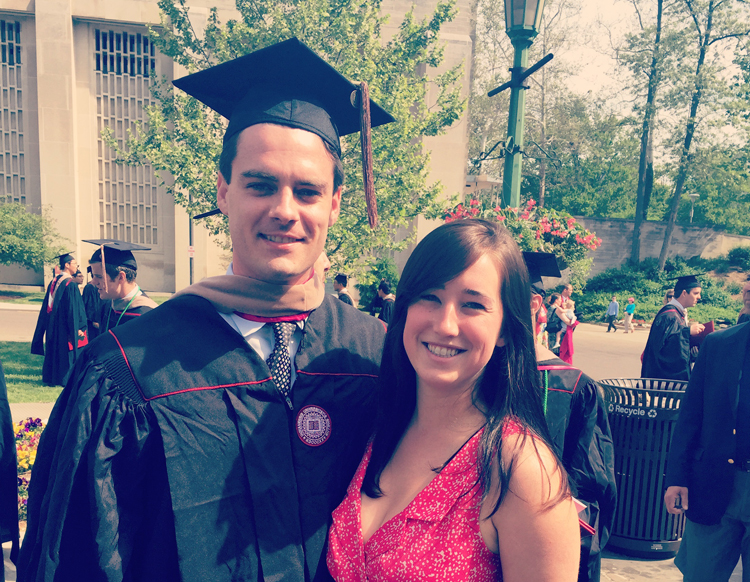As part of our mission-based blog series on how travel helps advance careers and creates leaders, we reached out to TEFL-certified, world traveler, Brian Thacker. In our latest interview, Brian shares his first-hand experience on how he used his experiences abroad to help land his most recent job.
Q: You have an MBA, a great job and you have taught abroad. How did you make it work to travel and still land your dream job?
I left to work abroad when I was 22. I had been working in an office environment for a few months but, as many college grads discover of their first job out of school, it was pretty boring.
I wasn’t ready to just dig in and start “climbing the ladder.” What I really wanted to do was travel. Specifically, I wanted to live in a big city in Latin America and eventually I decided on Buenos Aires, because I’d heard a lot of good things about it and I knew there would be plenty of opportunities to teach.
When I look back on the whole experience and think about how it helped me get to where I am now, the key is that I have a story to tell. A lot of people can talk about what they do, but far fewer people are able to form a compelling story around why they do it. Teaching abroad wasn’t the “safe” thing for me to do, but it helped me grow and differentiate myself in ways that more traditional career choices can’t match.

Q: What advice do you have for students and graduates who are focused on their career goals but want to travel?
I’ve never really had anyone tell me: “Oh, that time I spent abroad after college was such a waste,” or “Yeah, I’m really glad I decided to not to travel after school.” It’s always the opposite. Taking time away from your career is a difficult decision primarily because nothing is guaranteed when (or if) you come back.
But if it is something that truly interests you, I can all but guarantee that you’ll seriously regret not doing it a few years down the line. Be honest with yourself and with your manager(s) and DON’T burn bridges.

Q: When you were a student, what made you decide to take the time to travel abroad and how did that affect your career goals?
Curiosity was probably the biggest factor. Also Urbana, Illinois was starting to get kind of boring after two years. My decision to study abroad in Ecuador, specifically, was made with the help of my advisor at the study abroad office who had studied there a few years earlier. I remember him telling me how nearly everyone looking to study Spanish abroad will default to Spain, but that Latin America offered lots of great opportunities as well.
In terms of how that experience impacted my career goals, it made me want to go back to South America after school (to teach) and then that kind of snowballed into wanting to join a company (General Electric) that had a big presence in that region so I could go back again!
Q: How do you feel your travel experiences abroad have helped you stand out on job interviews?
Job interviews are all about differentiation. The basic question a potential employer is looking for you to answer is: “Why should I hire you over the 15-20 other people I’ve interviewed?”
Having international work experience (as an American citizen) is something companies love because it shows that you can adapt to different cultures and can bring a fresh perspective to their company.
In my case, it also helped me become fluent in Spanish. With this type of experience, there’s a much better chance that your interviewer will at least be able to make a positive association with your name. The rest really comes down to how well you can tell your story.

Q: What travel experiences did you feel made the greatest impact on you leading up to your current career opportunity?
Working as a freelance teacher in Buenos Aires. I moved there with a few thousand dollars I’d saved and a TEFL certificate I’d earned, but didn’t have a job lined up because no one would interview me until I was actually there (I came to learn that’s typical of the way they do business in much of Latin America).
So the reason I take so much pride in that whole experience is that I had to hustle for everything. I was in a totally unfamiliar environment, but I had worked so hard just to get to that point and I felt so excited to be making it all happen.
Q: Do you have advice for anyone who has defined career goals but still wants to travel after graduation?
Try not to worry so much about what you think you should do and focus more on what you want to do. Also, be as honest as you can with yourself about why you’re making the decisions that you are. If you’re not comfortable with those answers, it might be time to reevaluate your goals. Finally, I’ll say it once again: Don’t burn bridges!
